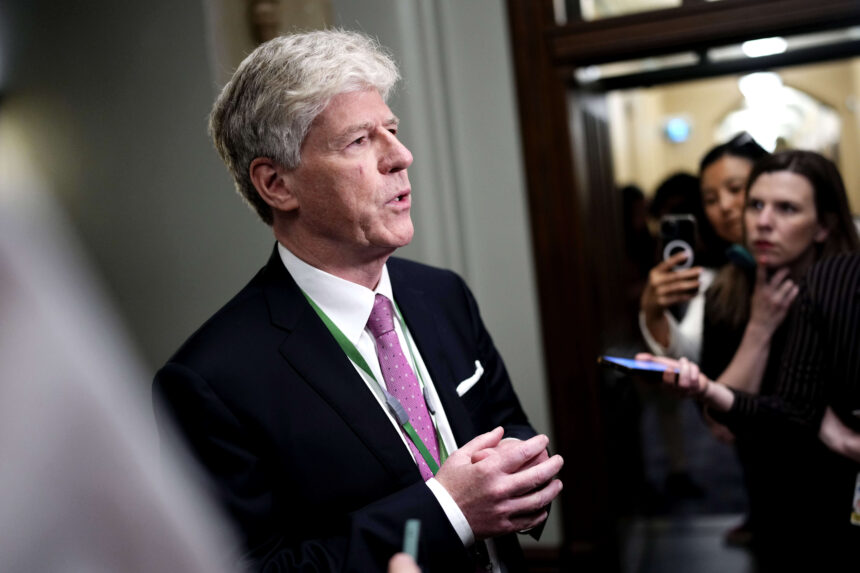The energy sector’s future in Calgary received renewed attention yesterday as federal Infrastructure Minister Catherine McKenna addressed a packed downtown Chamber of Commerce luncheon. Her remarks aimed to strike a balance between Canada’s climate commitments and Alberta’s economic concerns—a tightrope walk that’s become increasingly complex.
“Calgary remains at the heart of Canada’s energy transition,” McKenna told the audience of business leaders and industry representatives. “We need to build infrastructure that serves both our immediate needs and our long-term climate goals.”
The minister’s visit comes amid growing tensions between Ottawa and Alberta over energy policy. Provincial officials have repeatedly criticized federal climate initiatives as threats to the province’s economic foundation. Mayor Jyoti Gondek, who introduced McKenna at the event, emphasized the need for policies that recognize Calgary’s unique position.
“Our city has the expertise, the workforce, and the innovation capacity to lead in both traditional and renewable energy,” Gondek said. “What we need is policy certainty and investment support.”
McKenna’s speech highlighted a $3.4 billion infrastructure package earmarked for Western Canada, with approximately $780 million specifically for Calgary-area projects. These investments will target energy grid modernization, carbon capture facilities, and hydrogen production research—sectors the federal government sees as bridges between current energy systems and future needs.
Industry reaction was cautiously optimistic. Sarah Thompson, CEO of Calgary-based EnergySphere, noted that the funding represents a step in the right direction but questioned whether it goes far enough.
“The scale of transformation we’re undertaking requires more substantial backing,” Thompson said after the event. “We appreciate the minister’s acknowledgment of our challenges, but the gap between policy ambition and funding reality remains significant.”
The Calgary Chamber’s quarterly economic outlook, released last week, highlighted energy infrastructure as the top concern for local businesses. Nearly 68% of surveyed companies identified regulatory uncertainty as their primary challenge, followed closely by access to capital for transition projects.
McKenna’s presentation included acknowledgment of these concerns, pointing to regulatory streamlining initiatives her department has implemented over the past eight months. These changes aim to reduce approval timelines for critical infrastructure by approximately 30%.
“We can’t afford endless delays,” she said. “Not if we want to meet our climate targets and maintain economic competitiveness.”
The minister’s visit coincided with yesterday’s release of new Statistics Canada data showing Alberta leading the country in clean technology investment growth, with a 23% increase year-over-year. Calgary companies account for nearly half of that expansion, particularly in geothermal and carbon management technologies.
Local energy economist Peter Tertzakian from the ARC Energy Research Institute told me after the event that McKenna’s messaging represents a subtle but important shift in federal positioning.
“There’s growing recognition that the energy transition needs to include rather than exclude existing players,” Tertzakian said. “The minister’s emphasis on building from current strengths rather than starting from scratch suggests a more pragmatic approach is taking hold in Ottawa.”
During the question period, several attendees pressed McKenna on pipeline policy—a perennially contentious issue. Her responses emphasized the government’s commitment to existing approved projects while avoiding specific commitments to new transportation infrastructure.
This careful positioning reflects the political tightrope federal officials walk when addressing Calgary audiences. The city’s economic recovery remains closely tied to energy sector health, yet there’s growing acknowledgment of transition necessities among industry leaders.
I’ve covered Calgary’s energy sector for nearly a decade, and the tone at yesterday’s event felt noticeably different from similar gatherings even three years ago. There’s less defensive posturing and more strategic positioning around how Calgary’s energy expertise can evolve rather than simply persist.
Provincial Energy Minister Brian Jean, who attended but did not speak at the event, released a statement afterward calling for “more than just supportive words” from the federal government.
“Albertans need concrete action that respects provincial jurisdiction and recognizes the continued importance of responsible resource development,” Jean stated.
McKenna’s visit continues today with tours of the Clean Resource Innovation Network facilities and meetings with indigenous business leaders focused on partnership opportunities in the energy transition landscape.
The infrastructure funding announced yesterday will begin flowing in September, according to federal timelines, with project applications opening next month. The minister emphasized that proposals demonstrating both economic and environmental benefits will receive priority consideration.
For Calgary’s energy sector, navigating these dual imperatives has become the defining challenge of this decade. The policy framework outlined yesterday provides some additional clarity, but many questions remain about implementation and long-term support mechanisms.
As I watched business cards exchange hands after the formal program concluded, the networking buzz centered on how companies might position themselves to access the new funding while adapting to evolving policy realities. That pragmatic focus—rather than ideological debate—perhaps represents the most significant shift in Calgary’s energy landscape.







